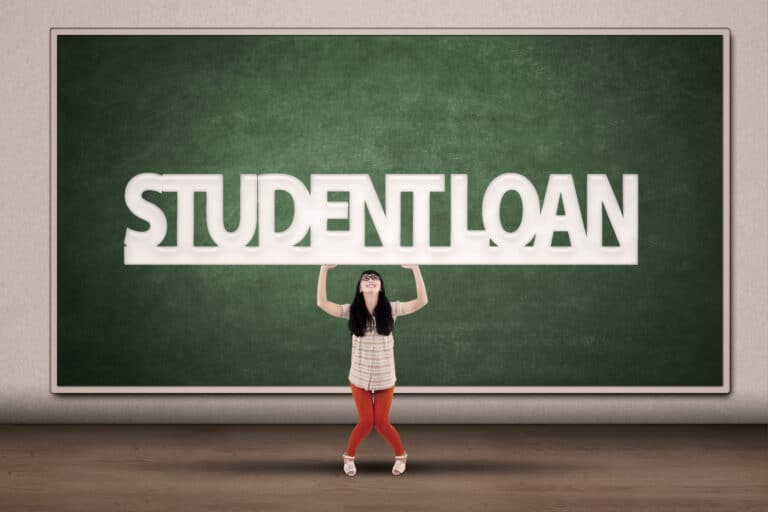
Don’t overlook the possibilities for approval.
You’ve completed your education and are working to advance your career.
You believe that purchasing a home is the next logical step for you.
There is only one obstacle to overcome. It’s possible that the school loans that got you here will make it more difficult to secure a mortgage.
Maybe difficult, but not impossible.
All mortgage programs now include provisions for applicants who have deferred student loans as well as those who have loans that are in repayment.
Graduates with college debt, both recent and not-so-recent, can follow a series of rules to boost their chances of getting a low-interest mortgage.
Are you underestimating your ability to purchase a home?
According to a recent poll conducted by the National Association of REALTORS® and the nonprofit group American Student Assistance, 71 percent of student loan borrowers feel their debt will prevent them from purchasing a home.
More than half indicated it would put their home-buying plans on hold for at least five years.
The impression is correct. Are these self-evaluations, however, accurate? Perhaps not.
Student loans may have an impact on your loan approval, but not in the way you might assume.
Your total monthly student loan payment, or an estimate of it, is more essential than the amount you owe.
That’s because your debt-to-income (DTI) ratio will be used by lenders to assess your creditworthiness.
The debt-to-income ratio (DTI) is a calculation that compares your income to your debt payments. Although lenders can make allowances in rare instances, they prefer this percentage to be lower than 43 percent.
The following approach is used by lenders to calculate your DTI.
- Add up all of your debt installments, including student loans, auto loans, and your upcoming mortgage payment.
- Subtract your monthly loan payment from your gross monthly income before taxes and deductions.
An applicant with a gross income of $5,000 and total debt of $2,000, for example, would have a DTI of 40% and would be approved.
But how do lenders figure out how much you owe on your student loans?
What You Should Know About Income-Based Repayment And Student Loan Deferment
Even though your monthly student loan payments are small, you may be denied or permitted for a smaller amount.
This is frequently the case for borrowers who combine their student loans and switch to income-based repayment (IBR) plans, which extend the loan’s term in exchange for reduced monthly payments.
The same issue arises with deferred student loans. Even though you don’t owe money right now, the lender will calculate the actual payment, or a payment based on the balance, in the future.
For example, loans supplied by the Federal Housing Administration (FHA) anticipate a payment of 1% of the loan principal for student loans that aren’t yet due.
Six Steps to Getting a Mortgage with Student Loans
You don’t have to give up on your ambition of owning a home because of student loan debt.
You worked hard to acquire your degree. Buying a property is now much easier than it was before. Listed below are detailed directions to help you get there.
1. Make an application for an FHA loan.
When it comes to DTI and credit, FHA loans are more liberal than conventional loans. Alternative credit based on rent, mobile phone, and utility payments can be accepted even for home buyers with little credit history.
2. Inquire about a downpayment gift.
Most recent college graduates do not have the funds to put down a 20% deposit, but a relative may.
All financing schemes allow family and even long-time acquaintances to contribute all or part of a house buyer’s down payment. Request a financial down payment gift to help you get into a house sooner.
3. Reduce the amount of money you owe on your student loans.
With your student loan provider, discuss your alternatives for lowering monthly payments. “It may also make sense to refinance your student loans into a lengthier private loan with a cheaper interest rate—which might drop your monthly payment to the point where the DTI works in your favor,” Farrington adds.
4. Reduce or eliminate your debt payments.
Try to pay off your credit card, auto loan, and/or school loan debt before qualifying for a mortgage.
Refinancing a $400-per-month auto loan improves your ability to purchase a property. Try refinancing a hefty auto loan into a longer term or a lower interest rate if you can’t pay it off.
5. Form a partnership on the loan.
Kelly Koklas, a vice president and mortgage banker at PrivatePlus Home in Atlanta, adds that adding a co-borrower who brings in additional income to the mortgage loan will help lower your DTI.
It’s possible to deal with anyone you want when it comes to getting a mortgage.
6. Submit an application for a deferment or forbearance.
Even if your loan is in deferment or forbearance, your lender will estimate future payments and add them to your DTI. However, if you qualify with your expected student loan payments, delaying payments may help you better manage your first few years of homeownership.